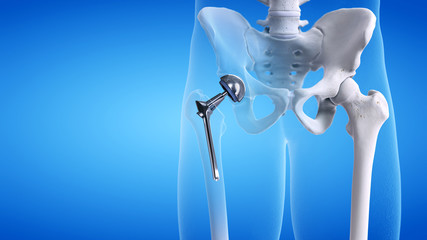What is the most serious type of arthritis?
- hospitalslivasa
- Jan 27
- 2 min read
Arthritis is a group of conditions characterized by inflammation in one or more joints, leading to pain, stiffness, and swelling. While there are over 100 types of arthritis, rheumatoid arthritis (RA) is often considered the most serious due to its systemic effects and potential to cause severe joint damage, disability, and complications in other parts of the body.

Understanding Rheumatoid Arthritis
Rheumatoid arthritis is an autoimmune disease in which the immune system mistakenly attacks the synovium—the lining of the membranes surrounding the joints. This results in inflammation that can eventually destroy cartilage and bone within the joint. RA is different from other forms of arthritis, such as osteoarthritis, which primarily results from wear and tear.
Symptoms of Rheumatoid Arthritis
RA symptoms vary in severity but commonly include:
Joint pain and swelling, particularly in the hands, wrists, and knees.
Morning stiffness lasting longer than 30 minutes.
Fatigue, fever, and weight loss.
Rheumatoid nodules, or firm lumps, under the skin.
As the disease progresses, it can affect organs such as the lungs, heart, and eyes, making it a systemic condition with potentially life-threatening consequences.
Why is RA Considered Serious?
Rheumatoid arthritis is regarded as serious because it is chronic, progressive, and can lead to:
Joint deformity and disability: Severe damage to the joints can limit mobility and quality of life.
Systemic complications: Inflammation from RA can cause cardiovascular issues, lung diseases, and even increase the risk of infections.
Emotional and mental health challenges: Chronic pain and fatigue can contribute to anxiety and depression.
Treatment Options
While RA is not curable, effective treatments are available to manage symptoms and prevent progression. These include:
Medications: Disease-modifying antirheumatic drugs (DMARDs) and biologics help control the immune response and reduce inflammation.
Physical therapy: Strengthening exercises and joint care techniques can improve mobility.
Surgery: In advanced cases, joint replacement or repair surgeries may be necessary.
Top Hospitals for Arthritis Treatment in Khanna
Access to specialized care is crucial for managing rheumatoid arthritis effectively. Here are the top hospitals for Arthritis Treatment in Khanna:
Livasa Hospitals: Livasa Hospitals is renowned for its expertise in rheumatology and arthritis care. The hospital provides comprehensive treatments, from early diagnosis to advanced therapies, ensuring optimal outcomes for patients with RA and other forms of arthritis.
Fortis Hospital, LudhianaFortis offers advanced rheumatology services, including cutting-edge treatments for complex arthritis cases. Its multidisciplinary team ensures holistic care.
Dayanand Medical College & Hospital (DMCH), LudhianaDMCH is a leading healthcare institution specializing in arthritis and joint-related conditions, providing personalized treatment plans for patients.
Conclusion
Rheumatoid arthritis is one of the most serious forms of arthritis due to its systemic nature and potential to cause debilitating complications. Early diagnosis and treatment are essential to manage the condition effectively and prevent long-term damage. Hospitals like Livasa Hospitals, Fortis Hospital, and Dayanand Medical College & Hospital and other top facilities near Khanna offer world-class care for Arthritis Treatment in Khanna, helping patients lead healthier, more comfortable lives. If you suspect symptoms of RA, consult a specialist promptly for timely intervention.



Comments